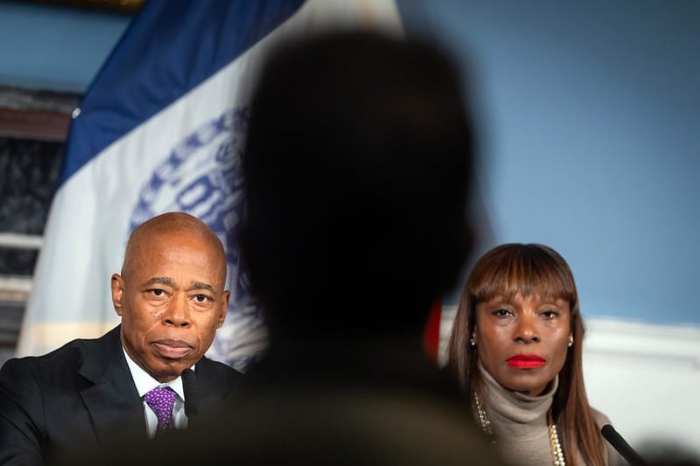Students and faculty dressed up in traditional Balinese outfits while performing in honor of the new Gamelan music course that will be held during the spring semester at Queens College.
“This course is a way of broadening students experience to play music,” said Edward Smaldone, director of the Aaron Copland School of Music. “This gives students the opportunity to experience culture from other parts of the world.”
The course will be taught by Professor Michael Lipsey and Gamelan teacher Nyoman Saptanyana. Saptanyana studied at the famous conservatory, STSI, in Bali. He is also the music director of the Gamelan Semaradana orchestra called Dharma Swara.
Lipsey spent two months in Bali organizing the sale and delivery of the instruments which were made by the Pande Sukerta, the most well known and revered Gamelan maker on the island. “Pande,” in Balinese means “skilled craftsman.”
Lipsey also has spent several years studying and playing Gamelan music.
“I feel joy when I play,” said Lipsey. “This music is very special.”
Before Lipsey discovered Gamelan music, he played classical music using the timpani and the snare drum.
Gamelan music is celebratory spiritual music performed for any occasion. According to Lipsey, the music is used for marriages, funerals, parades or any celebratory event that takes place in Bali.
Each individual has a role in the way the music is executed. For example, one of the longer metallophones is played by four people who are equipped with a pair of soft wooden mallets. Each mallet and each person play a different melody than the person next to them.
“This is the most challenging type of music I’ve ever played, because you have to play different than the person next to you,” said Sean Kelly, a junior at Queens College who has studied classical music.
The transition from classical music to gamelan was a difficult for him because of the interlocking melodies.
Lipsey gave the music director and people in the audience an opportunity to play and experience the music for themselves.
“It is like being in a parade that does not go anywhere,” said Smaldone. “Each part is little, but the cumulative effect is huge.”
It was also freshman Derek Kwan’s first time playing this style of music.
“It’s cool, but weird at the same time. There is a groove to the music and it feels like an outer body experience once you get into the rhythm,” he said.































